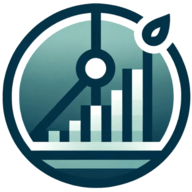What Unexpected Market Trends Have You Identified?
Just when you thought you had the market figured out, surprising trends emerge that can change the game entirely. In a fascinating Q&A, investment analysts reveal insights such as Gen Z's preference for sustainable investments and the growing demand for digital detox experiences. With six unexpected market trends uncovered, this article provides a comprehensive look at the evolving landscape. Discover how these analysts communicate these pivotal findings to their clients and stay ahead of the curve.
- Gen Z Prefers Sustainable Investments
- Luxury Goods Market Remains Resilient
- Hyper-Personalized Marketing Outperforms Traditional Methods
- Nostalgia-Driven Consumption on the Rise
- Ethical Consumption Influences Purchasing Decisions
- Growing Demand for Digital Detox Experiences
Gen Z Prefers Sustainable Investments
As the CEO of Spectup, I've seen my fair share of market trends, but one that really caught me off guard was the surge in demand for sustainable investment opportunities among Gen Z. We noticed this trend while working with a fintech startup targeting young investors. Initially, their product focused solely on high returns, but our data showed that Gen Z was more interested in where their money was going than how much it was making.
I remember sitting down with the startup's founders, who were skeptical at first. "Niclas," they said, "are you sure about this? It seems counterintuitive." To convince them, we dug deeper into the data and even conducted some quick surveys among their target audience. The results were clear: Gen Z wanted their investments to align with their values.
We helped the startup pivot their strategy, incorporating sustainable investment options and transparent reporting on the environmental and social impact of investments. It was a bit of a gamble, but it paid off big time. The startup saw a 200% increase in user acquisition within three months of implementing these changes.
This experience taught me the importance of looking beyond traditional metrics when analyzing market trends. Now, at Spectup, we always encourage our clients to consider the values and motivations driving their target audience, not just the numbers. It's not always about finding the most obvious trend, but about uncovering the hidden desires that can revolutionize a product or service.

Luxury Goods Market Remains Resilient
Despite the economic downturn, the market for luxury goods has surprisingly flourished, suggesting a resilience among high-end shoppers. This trend indicates that affluent consumers may prioritize quality and brand prestige even in challenging times. Businesses dealing in luxury items can capitalize on this by maintaining their premium positioning and perhaps even expanding their offerings.
Advertising campaigns that highlight craftsmanship and exclusivity may resonate well with these buyers. As the economy fluctuates, adapting strategies to cater to this segment could yield positive results. Pay attention to shifts in consumer spending habits and adjust your marketing focus accordingly.
Hyper-Personalized Marketing Outperforms Traditional Methods
Hyper-personalized marketing campaigns have significantly outperformed traditional mass advertising methods. By tailoring content to meet individual preferences and behaviors, businesses can more effectively engage their target audiences. This approach often leads to higher conversion rates and better customer loyalty.
In today's saturated market, personalization helps brands stand out and create meaningful connections with consumers. Companies should invest in data analytics and personalization technologies to refine their marketing strategies. Explore how you can incorporate more personalized elements into your campaigns for better engagement.
Nostalgia-Driven Consumption on the Rise
There has been an unexpected surge in nostalgia-driven consumption, with consumers increasingly seeking products that remind them of the past. This trend is particularly evident in industries such as fashion, entertainment, and food, where retro styles and flavors are making a strong comeback. Such behavior suggests that consumers are craving comfort and familiarity in uncertain times.
Businesses can tap into this by reintroducing classic products or developing new ones with a nostalgic twist. Monitor consumer sentiment and consider how nostalgia could be leveraged in your product offerings.
Ethical Consumption Influences Purchasing Decisions
Ethical consumption is now a major driving force behind purchasing decisions across various demographics. Consumers are placing greater importance on sustainability, ethical sourcing, and social responsibility when choosing products. This shift is compelling companies to reevaluate their supply chains and business practices to align with these values.
Brands that can authentically demonstrate their commitment to ethical practices are more likely to earn consumer trust and loyalty. It’s crucial for businesses to transparently communicate their efforts in these areas. Investigate ways to enhance your brand's ethical stance and share these efforts with your customers.
Growing Demand for Digital Detox Experiences
There is a growing demand for digital detox experiences as people seek to unplug from their constant connectivity. This trend highlights a societal need for rest and reconnection with the physical world due to the overwhelming nature of digital life. Industries like travel, hospitality, and wellness are seeing opportunities to cater to this need by offering tech-free retreats, mindfulness workshops, and nature-based activities.
Providing spaces or services where people can disconnect from their devices can attract this segment. Consider integrating elements of digital detox into your offerings to appeal to those looking for a break from technology.

